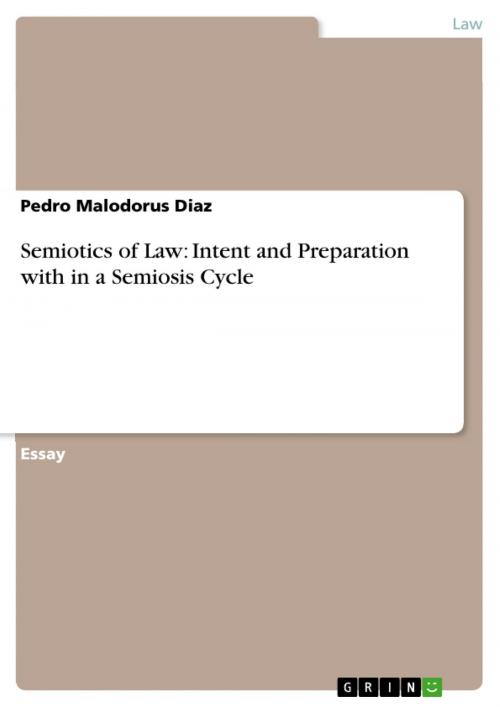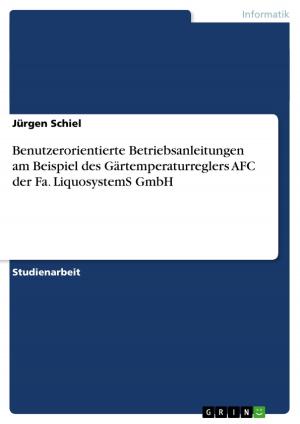Semiotics of Law: Intent and Preparation with in a Semiosis Cycle
Nonfiction, Reference & Language, Law, Legal History| Author: | Pedro Malodorus Diaz | ISBN: | 9783656316237 |
| Publisher: | GRIN Verlag | Publication: | November 21, 2012 |
| Imprint: | GRIN Verlag | Language: | English |
| Author: | Pedro Malodorus Diaz |
| ISBN: | 9783656316237 |
| Publisher: | GRIN Verlag |
| Publication: | November 21, 2012 |
| Imprint: | GRIN Verlag |
| Language: | English |
Essay from the year 2010 in the subject Law - Philosophy, History and Sociology of Law, The University of Texas at El Paso, language: English, abstract: This paper examines the legal impossibility that exists when Law Enforcement introduces evidence of a violation of law. Where Law enforcement creates hyper-real entities and uses these entities as actual real victims to prosecute cases involving computer crimes. The courts, prosecutors and juries fail to understand that a symbolic character across the computational medium, the umwelt is not and cannot ever become real simply because law enforcement claims so. Reality can only exist within the realm where we as humans exist. Hyper-reality remains at a realm that only our minds can imagine. The umwelt is that area that buffers reality from hyper-reality. Television exemplifies this argument, a person watching television can only become so involved with his/her favorite show and no matter how involved the person is - it can never cross that medium that separates them from that show. The Hypothetical Detective claiming to have understood the intentions of the suspect across that medium is only deceiving himself. Umberto Eco has been quoted as saying...'The battle for survival as a responsible human in the communication era is not to be won where communication begins, but where it ends. When Law enforcement takes it upon itself to ensnare an individual and fails to define full intent and preparation within the semiosis cycle it becomes a legal impossibility.
Essay from the year 2010 in the subject Law - Philosophy, History and Sociology of Law, The University of Texas at El Paso, language: English, abstract: This paper examines the legal impossibility that exists when Law Enforcement introduces evidence of a violation of law. Where Law enforcement creates hyper-real entities and uses these entities as actual real victims to prosecute cases involving computer crimes. The courts, prosecutors and juries fail to understand that a symbolic character across the computational medium, the umwelt is not and cannot ever become real simply because law enforcement claims so. Reality can only exist within the realm where we as humans exist. Hyper-reality remains at a realm that only our minds can imagine. The umwelt is that area that buffers reality from hyper-reality. Television exemplifies this argument, a person watching television can only become so involved with his/her favorite show and no matter how involved the person is - it can never cross that medium that separates them from that show. The Hypothetical Detective claiming to have understood the intentions of the suspect across that medium is only deceiving himself. Umberto Eco has been quoted as saying...'The battle for survival as a responsible human in the communication era is not to be won where communication begins, but where it ends. When Law enforcement takes it upon itself to ensnare an individual and fails to define full intent and preparation within the semiosis cycle it becomes a legal impossibility.















